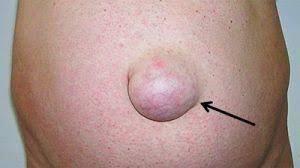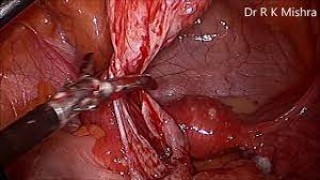Video Lecture on MGB by Dr. Robert Rutledge, the inventor of MGB at World Laparoscopy Hospital
Add to
Share
2,257 views
Report
2 years ago
Description
This is a Video Lecture on MGB by Dr. Robert Rutledge, the inventor of MGB at World Laparoscopy Hospital. With over 25 years of experience in surgical practice and board-certified in general surgery, Dr. Robert Rutledge is a renowned expert in bariatric surgery and the innovator behind the Mini Gastric Bypass (MGB) procedure. The MGB procedure, which involves creating a smaller stomach pouch and rerouting the small intestine to restrict food intake and absorption, is widely regarded as a safer and more effective alternative to traditional gastric bypass surgery. Aside from his clinical expertise, Dr. Rutledge is also an active researcher and educator, having published numerous papers on bariatric surgery and delivering lectures at medical conferences worldwide. His contributions to the development of the MGB procedure have helped transform the lives of countless individuals battling obesity and related health issues, cementing his reputation as one of the most respected figures in the field of bariatric surgery. The Mini Gastric Bypass (MGB) is a surgical weight loss procedure that has gained popularity in recent years as a safer and more effective alternative to traditional gastric bypass surgery. Developed by Dr. Robert Rutledge, a board-certified general surgeon and leading expert in bariatric surgery, the MGB involves creating a smaller stomach pouch and rerouting the small intestine to restrict the amount of food that can be consumed and absorbed by the body. The MGB procedure is less invasive than traditional gastric bypass surgery, requiring fewer incisions and a shorter hospital stay. Unlike other bariatric surgeries, the MGB can be performed as a same-day procedure, allowing patients to return home within a few hours of the surgery. One of the key advantages of the MGB is its long-term success rate. Studies have shown that patients who undergo the MGB procedure experience significant weight loss and improvements in metabolic disorders such as type 2 diabetes, high blood pressure, and high cholesterol. This is due to the procedure's ability to reduce the amount of food that can be consumed and absorbed by the body, leading to a decrease in calorie intake and an increase in satiety. Another advantage of the MGB is its lower risk of complications. Compared to traditional gastric bypass surgery, the MGB has a lower risk of surgical complications such as bleeding, infection, and anastomotic leaks. The procedure also has a lower risk of long-term nutritional deficiencies, as the rerouting of the small intestine allows for greater absorption of nutrients from food. Despite its advantages, the MGB is not suitable for everyone. Patients with a high body mass index (BMI) or a history of previous abdominal surgeries may not be suitable candidates for the procedure. Additionally, like all surgical procedures, the MGB carries risks and potential complications, including blood clots, bowel obstruction, and pneumonia. In conclusion, the Mini Gastric Bypass (MGB) is a safe and effective surgical weight loss procedure that has revolutionized the field of bariatric surgery. Developed by Dr. Robert Rutledge, the MGB offers patients a less invasive and lower-risk alternative to traditional gastric bypass surgery, with a long-term success rate that rivals other bariatric procedures. While not suitable for everyone, the MGB is an excellent option for individuals struggling with obesity and related health issues who are seeking a safe and effective weight loss solution.
Similar Videos






